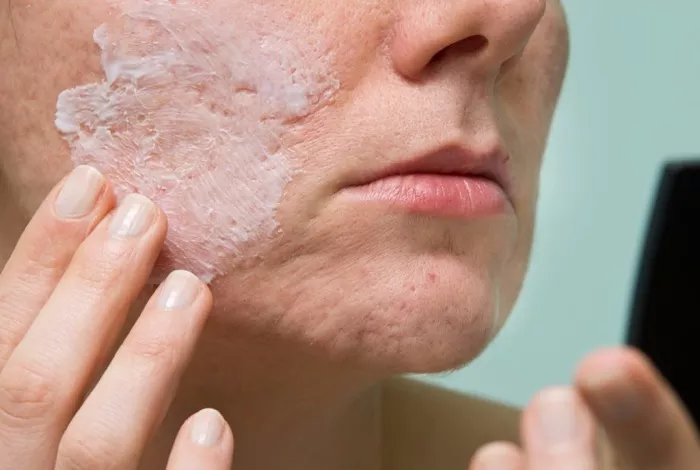Obsessive-Compulsive Disorder (OCD) is a mental health condition that affects millions of people worldwide. While it is commonly associated with childhood or adolescence, OCD can also develop later in life, a phenomenon known as late-onset OCD. This article aims to explore what late-onset OCD is, its symptoms, causes, treatment options, and how it differs from the more typical onset of OCD. By understanding late-onset OCD, individuals and healthcare providers can better address and manage this condition.
Late-Onset OCD
Late-onset OCD refers to the development of obsessive-compulsive symptoms after the age of 18, often in middle age or older adulthood. The condition can manifest similarly to early-onset OCD, with individuals experiencing intrusive thoughts (obsessions) and repetitive behaviors (compulsions) that they feel driven to perform. However, the onset in adulthood can present unique challenges, and the condition may be overlooked or misdiagnosed due to other health concerns or aging processes.
Symptoms of Late-Onset OCD
The symptoms of late-onset OCD are much like those observed in individuals with early-onset OCD. These symptoms can vary in severity but typically include:
Obsessions: These are unwanted, intrusive thoughts, images, or urges that cause significant distress. Common obsessions in late-onset OCD may include fears of contamination, harming others, or making mistakes.
Compulsions: Compulsive behaviors are actions that a person feels compelled to perform in response to obsessions. These may include repetitive washing, checking, or organizing. People with late-onset OCD may also develop mental compulsions, such as counting or silently repeating phrases to reduce anxiety.
Anxiety and Distress: Individuals with late-onset OCD often experience heightened anxiety related to their obsessions and compulsions. The inability to control these thoughts and behaviors can significantly affect daily life and relationships.
Avoidance: Some individuals with late-onset OCD may avoid specific places, situations, or people that trigger their obsessive thoughts. This avoidance can further isolate them from their social support network and daily activities.
Causes of Late-Onset OCD
The exact cause of OCD, including late-onset OCD, is still not fully understood. However, several factors are believed to contribute to the development of OCD later in life:
Genetics: A family history of OCD or other anxiety disorders can increase the likelihood of developing the condition. Genetic research has shown that certain genes related to serotonin regulation may play a role in OCD.
Brain Function and Chemistry: Brain imaging studies have indicated that changes in brain structure and function, particularly in areas involved in regulating emotions and behavior, may contribute to the onset of OCD. Imbalances in serotonin, a neurotransmitter, are often found in people with OCD.
Environmental Stressors: Life events such as major stressors, trauma, or illness in adulthood can trigger or exacerbate OCD symptoms. These stressors might include the loss of a loved one, a divorce, a significant medical diagnosis, or other major life changes.
Medical Conditions: Certain medical conditions or changes in health during adulthood can contribute to the development of OCD. Conditions such as brain injuries, infections, or neurodegenerative diseases like Parkinson’s disease may trigger OCD-like symptoms.
Hormonal Changes: Hormonal fluctuations during menopause or in older adults may also play a role in the development or worsening of OCD symptoms. These changes can impact mood, stress responses, and the brain’s chemical balance.
Challenges in Diagnosing Late-Onset OCD
Late-onset OCD presents unique challenges when it comes to diagnosis. In older adults, symptoms of OCD can be mistaken for other conditions such as:
Dementia or Cognitive Decline: As people age, cognitive decline or neurodegenerative diseases like Alzheimer’s disease may mimic symptoms of OCD. These conditions can involve repetitive behaviors and difficulties with concentration or memory, which may be confused with compulsions.
Anxiety and Depression: Late-onset OCD is often misdiagnosed as a form of anxiety disorder or depression. Individuals with anxiety may exhibit compulsive behaviors as a way to manage stress, and those with depression may experience intrusive thoughts. However, OCD is distinct in its cyclical pattern of obsessions and compulsions.
Physical Health Conditions: Chronic health conditions common in older adults, such as cardiovascular disease or diabetes, can sometimes result in behaviors that resemble compulsions, such as excessive hand-washing or checking. These symptoms may be attributed to the individual’s medical concerns rather than OCD.
As a result, early identification and accurate diagnosis of late-onset OCD can be difficult. Healthcare providers must be vigilant and consider the full range of symptoms and potential contributing factors when diagnosing the condition.
Treatment Options for Late-Onset OCD
Like OCD in other age groups, late-onset OCD is treatable. Treatment options aim to reduce the frequency and severity of obsessive thoughts and compulsive behaviors, as well as address any underlying anxiety or depression. Common treatment approaches include:
Cognitive Behavioral Therapy (CBT): Cognitive Behavioral Therapy is a highly effective form of therapy for treating OCD. Specifically, a subtype of CBT called Exposure and Response Prevention (ERP) is used to help individuals gradually confront their fears and resist the urge to perform compulsions. ERP involves exposing the person to anxiety-inducing situations and preventing the compulsion, which can lead to a reduction in anxiety over time.
Medications: Selective serotonin reuptake inhibitors (SSRIs) are commonly prescribed to individuals with OCD. SSRIs, such as fluoxetine (Prozac) or sertraline (Zoloft), work by increasing serotonin levels in the brain, which can help reduce the intensity of obsessions and compulsions. In some cases, other medications like clomipramine, a tricyclic antidepressant, may be used.
Support Groups: Joining support groups for individuals with OCD can help those with late-onset OCD feel understood and less isolated. Support groups provide a space for sharing experiences, coping strategies, and offering mutual encouragement.
Lifestyle Modifications: Stress management techniques such as mindfulness, meditation, and yoga can help reduce anxiety and improve overall mental health. Exercise and maintaining a balanced diet are also important factors in managing OCD symptoms.
Family Therapy: Involving family members in the treatment process can be beneficial, especially for older adults with late-onset OCD. Family therapy can help loved ones understand the condition and provide support in managing symptoms.
Living with Late-Onset OCD
Living with late-onset OCD can be challenging, but many people with the condition are able to manage their symptoms and lead fulfilling lives. The key to managing OCD is recognizing that treatment takes time and requires ongoing support. With the right interventions, individuals with late-onset OCD can experience significant improvements in their quality of life.
Conclusion
Late-onset OCD presents a unique set of challenges but is treatable with appropriate interventions. By understanding the symptoms, causes, and treatment options, individuals and healthcare providers can work together to manage this condition. Awareness and early detection are key to ensuring that individuals with late-onset OCD receive the care and support they need to improve their mental health and overall well-being.
Related Topics

































